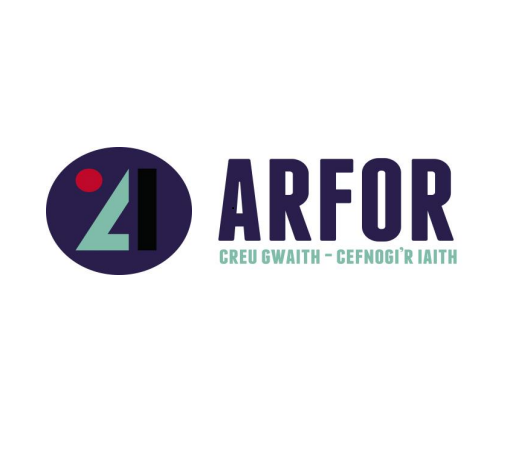On Friday 3 November 2023, many of those involved in the ARFOR programme came together at Aberystwyth University in an event organised by the Centre for Welsh Politics and Society. The aim of the day was to get to grips with questions regarding the significance of migration, what compels people to move away from places like ARFOR, and what kind of policy interventions could be considered to ensure the future of communities in North and West Wales.
In the first part of the session there were several presentations by a variety of academics on the implications of migration on areas in the region, that was the basis of a useful conversation in the second half where there was an opportunity for everyone to discuss that which they saw as the significance of ARFOR and what should be considered as the programme develops.
Dr. Huw Lewis, one of the organisers of the event, opened the day by asking several key questions to those who were present, to consider as the day progressed.
- What are the modern tendencies in terms of out-migration across the ARFOR region?
- What kind of factors influence on out-migration tendencies across the ARFOR region?
- Are there any conclusions that can be draws to support ARFOR II and it’s work streams?
The presentations that followed were all valuable contributions while attempting to answer these questions.
To begin there was a presentation by Dr. Huw Lloyd-Williams from Wavehill on some of the core migration statistics for the ARFOR area. His work showed, perhaps contrary to expectation, that out-migration patterns were similar in ARFOR compared to the rest of Wales in terms of percentage, and that there were similar percentages of young people there according to the statistics. There was also a statistical overview given of each individual county, showing the in-migration and out-migration figures for those areas in turn.
Professor Mike Woods from Aberystwyth University then gave a presentation looking at the career ambitions of young people in rural areas, focusing on some of the reasons that young people gave for wanting to stay or move from the areas in which they were raised. The presentation was based on a significant piece of research that was done in collaboration with WISERD.
Following a break there was a presentation by Elen Bonner who is a lecturer an a PhD student in Bangor University. Her research is based on a series of interviews conducted to try to establish a ‘typology of migration decisions made by Welsh speakers’ in order to better understand why exactly people move from certain areas. This pioneering work is sure to gain considerable influence as her research continues.
Afterwards Dr. Lowri Cunnington-Wynn, also from Aberystwyth University, gave an overview of her research looking at the communities of Ffestiniog and the importance that people place on various community issues. Lowri argued that economic factors weren’t always the main consideration of the people of Ffestiniog when deciding to stay in their area, but that they were mor likely to refer to family, language, community and a feeling of belonging when explaining their decision.
The event was organised as part of a wider work programme by Aberystwyth University’s Centre for Welsh Politics and Society, in partnership with Wavehill research company, with the aim of learning lessons from contemporary research work that can influence ARFOR’s work. The focus of the work so far has been to develop a more comprehensive understanding of the nature of rural out-migration and according to Dr. Huw Lewis the intention is to prepare a report that compiles key findings, including important issues that were raised during the workshop in Aberystwyth. Dr. Lewis sees this as part of a continuing process of evaluating and analysing ARFOR’s work as it develops, in the name of influencing and generating discussion about the work before the end of Phase II of the programme in 2025. Dr. Huw Lewis said:
‘In order to support the work of the ARFOR programme it is crucial that we develop a full understanding of the factors that can drive out-migration – how significant are factors such as housing or jobs, but also how significant are social factors or personal wants. The workshop was a good opportunity to discuss these questions and we will aim to compile some of the main findings of the day in the report that is intended to be published in due course.’
To learn more about the ARFOR programme, and similar events to be held in future, keep an eye on Arsyllfa’s website, subscribe to our newsletter, and follow us @Asyllfa on X/Twitter.



